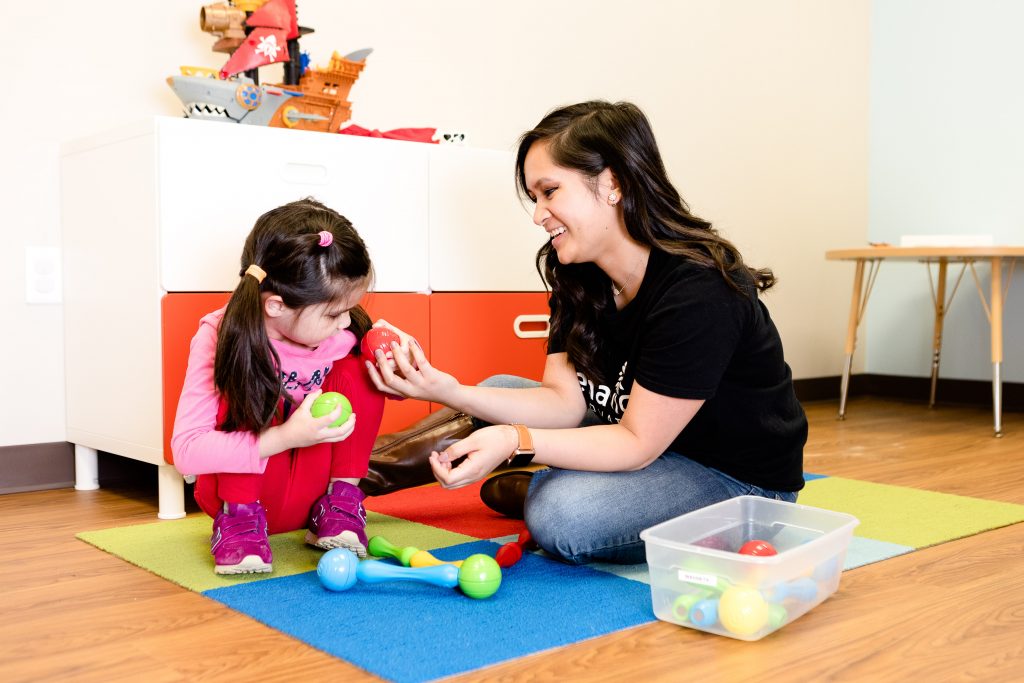
Applied Behavior Analysis (ABA) is a science-backed intervention for children with developmental disabilities such as Autism Spectrum Disorder (ASD). ABA therapy is becoming more common for many children in need of a safe, structured environment to enhance behavioral and social skills.
As opposed to typical therapy or counseling sessions, ABA therapy addresses a child’s specific developmental needs. If your child received a referral from a physician to begin ABA therapy, you’re probably wondering what these sessions look like.
While each session is customized for your child and their needs, there are several standard procedures associated with ABA therapy. Read on to review seven components you might see throughout ABA therapy treatment.
Assessment
Before beginning therapy, Board Certified Behavior Analyst (BCBA) clinicians gather information about your child, like their interests, prior therapeutic history, behavior concerns and desired goals for ABA. Board Certified clinicians also perform multiple standardized assessments that determine a child’s skill levels across a range of key domains, such as listening, play, social, reading, writing, and more. All this data is analyzed and synthesized to create a highly personalized plan for your child’s best interests by taking extensive, individualized notes.
Note that much of this information can be gleaned from intake packets if you fill one out as your family gets started.
Therapy in a Structured Environment
Most people, especially children, benefit from routine and consistency; it’s a significant factor in ABA therapy.
Therapy is most effective when conducted in locations where children feel safe and have a sense of routine. Most sessions take place in a dedicated clinic, but other settings can be used. Structured environments reduce stress and anxiety for many people, including children on the spectrum.
Targeted Goals and Data Collection
ABA sessions focus on goals discussed during the initial assessment (with new goals identified along the way). Targeted goals can cover everything from daily routines like getting dressed, to building skills like making a successful trip to the grocery store. The BCBA logs goals that were met along with information about the child’s initial performance to track progress.
If one of your child’s goals is to establish hygiene skills, one session may focus on washing their hands effectively. If your child needs to focus on social skills, your clinician may observe and support their interactions with peers in a group setting.
Clinicians record the data and improve the intervention strategies along the way.
Applied Techniques
To collect data, BCBAs use different applied techniques, such as prompting, fading, reinforcement schedules, discrete trial training, behavior management strategies, and more.
Positive Reinforcement
A licensed BCBA uses positive reinforcement such as praise, tokens, and other rewards the child values to reinforce positive behaviors. Studies show that positive reinforcement for behavior is highly effective. Pairing targeted goals with rewards helps encourage children to continue the behaviors in future sessions and after ABA therapy ends.
Positive reinforcement techniques assist children in other parts of an ABA therapy environment, including one-on-one therapy and naturalistic group activities. Structured circle time, independent play, and group activities are typically part of a full-day schedule in an ABA center.
Parental Involvement
Parental involvement during therapy has been shown to increase a child’s self-esteem. Even if your child seems like they’re independent or don’t need you there, your involvement can be beneficial. Therapists can give parents techniques and strategies to implement at home so children can continue their progress without the presence of the therapist.
Progress Review
At the end of each session, your child’s therapist might review their progress with you, noting positive progress as well as areas to focus on for future sessions. Reviews provide open communication between parents and therapists to mold the child’s sessions for their benefit and immediate goals.
Have Questions?
ABA therapists should never leave you in the dark! They are with you at every step so you can track your child’s progress. You’ll know exactly why and how they implement each technique and how it might develop your child’s skills. Feel free to ask questions about each session so you can feel secure in every decision made.
Brad Zelinger is the founder and CEO of Stride Autism Centers.








